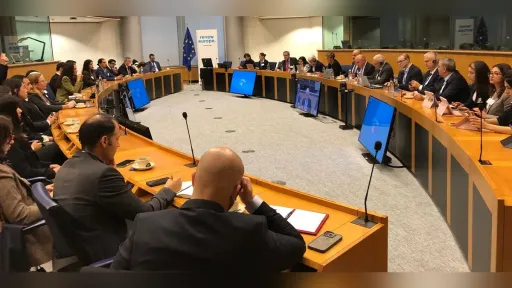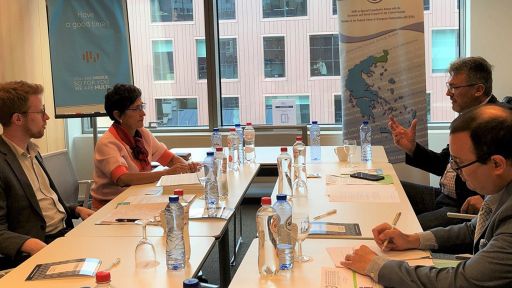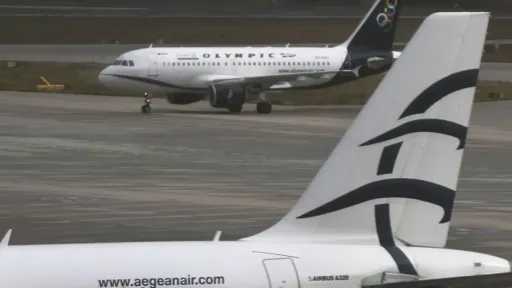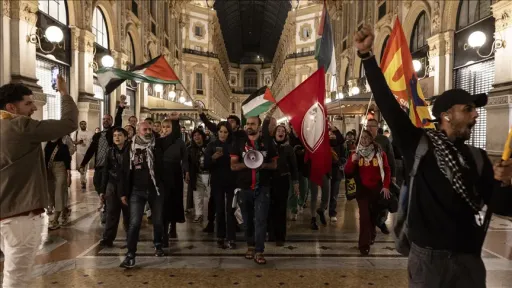Meskhetian Turks’ issues raised at the European Parliament

The International Society of Meskhetian Turks “VATAN”, a member of the FUEN Working Group on Turkish Minorities/Communities (TAG), organized a conference at the European Parliament (EP) hosted by MEP Ilhan Küçük (Renew Europe, Bulgaria). The event, titled “Georgia’s Integration with Europe: The Issue of Meskhetian Turks as a Benchmark for Compliance with EU Standards”, focused on the difficulties faced by Meskhetian Turks in their return process to Georgia.
Moderated by Deniz Servantie from the FUEN TAG Secretariat, the conference featured speakers including Fuad Pepinov (Vice President of VATAN), Ansar Usmanov (Head of Foreign Relations, VATAN), Dr. Zora Popova (Independent International Expert on Minority Rights, FUEN Academic Adviser), and Johan Häggman (Policy Adviser, FUEN Brussels Office).
In his opening remarks, MEP Küçük noted that while many minority groups were able to return to their homelands after World War II, this was not the case for Meskhetian Turks. He stressed that their unresolved situation must be considered in Georgia’s EU accession process.
VATAN Vice President Fuad Pepinov recalled that in 1944, Meskhetian Turks were deported from Georgia to Central Asia by order of Soviet leader Joseph Stalin. Despite the end of the war, he said, Georgia has obstructed their return, while continuing to deny their national identity, labeling them as “Georgian Muslims.” Pepinov underlined that most applications under Georgia’s 2007 Return Law have been rejected, urging the EU to address this issue in accession negotiations.
VATAN Foreign Affairs Head Ansar Usmanov argued that the 2007 law was effectively a “law of prevention”, blocking rather than facilitating return. He noted that organizations such as the UN, Council of Europe, and OSCE have repeatedly confirmed Georgia’s failure to meet its obligations, but Tbilisi has ignored these recommendations. Usmanov called for recognition of Meskhetian Turks as victims and for guarantees of citizenship rights under the law.
Independent expert Dr. Zora Popova compared the case with similar minority situations in the Western Balkans, highlighting that EU accession instruments can be leveraged to advance minority rights. She emphasized the need for political will, legal frameworks, and an EU-financed roadmap to achieve concrete results.
FUEN Policy Adviser Johan Häggman pointed out that EU treaties contain no explicit legal basis on minority rights, noting that while the Lisbon Treaty enforces the EU Charter of Fundamental Rights, its scope remains limited to EU law. He explained that language and minority policies remain under Member State competence, restricting EU action to awareness initiatives, small-scale funding, and research. Häggman concluded that financial support for minority groups often implies political recognition—something the EU has largely withheld from communities like the Meskhetian Turks.





